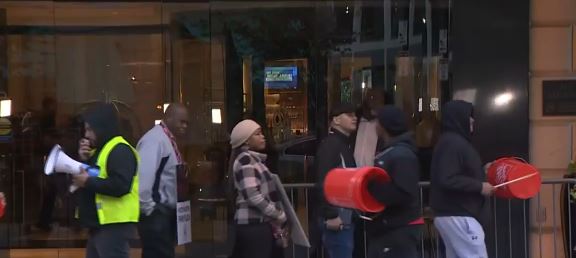In a landscape increasingly characterized by corporate introspection and evolving societal norms, Toyota Motor Corp. has made a notable pivot in its approach to diversity, equity, and inclusion (DEI). In an internal memo sent to U.S. employees and dealers on October 3, the automotive giant announced that it would cease its sponsorship of LGBT events and withdraw from external DEI rankings, signaling a shift that has resonated across the business world.
This decision comes amid a broader trend in corporate America, where companies are reevaluating their commitments to social initiatives. Toyota’s scaling back of its DEI efforts is not an isolated incident but part of a wave of similar rollbacks from prominent organizations, including Caterpillar, Ford, and Harley-Davidson. These companies are responding to mounting public pressure and a growing sentiment that businesses should concentrate on their core missions rather than engage in social activism.
In the memo, Toyota emphasized a renewed focus on initiatives directly tied to STEM education and workforce readiness, stating, “We will continue narrowing our community activities to align with STEM education and workforce readiness.” By prioritizing professional development and networking within its employee groups, known as Toyota Business Partnering Groups, the company aims to align its diversity initiatives with business objectives. This strategic shift reflects a desire to ensure that DEI efforts contribute to the company’s overall success rather than distract from it.
Interestingly, this recalibration appears to have been influenced, at least in part, by anti-DEI activist Robby Starbuck, who has publicly criticized Toyota for what he describes as “woke” policies. Starbuck has argued that the company has lost touch with its core customer base and has urged consumers to voice their opposition to Toyota’s DEI programs. In a follow-up message, he commended Toyota’s leadership for taking what he considers a “unifying action.” He stated, “It’s not easy to do but they’re preparing their business for future success by adopting corporate neutrality.” This perspective underscores a growing belief among some stakeholders that companies that embrace neutrality will be better positioned to resonate with their consumer base.
Despite these changes, it’s essential to recognize that Toyota’s previous DEI initiatives were robust and ambitious. The company’s most recent sustainability plan included specific goals aimed at increasing the representation of women and minorities in its workforce, including a fivefold increase in female managerial positions by 2030 compared to 2014 levels. It also incorporated unconscious bias training and implemented DEI scorecards for senior executives to monitor progress. This prior commitment was seen as a proactive approach to fostering an inclusive work environment and responding to the diverse needs of its global customer base.
The backlash against DEI initiatives has sparked criticism from organizations such as the Human Rights Campaign, which warns that retreating from these commitments could have detrimental effects on corporate reputation and the ability to attract diverse talent. The HRC argues that companies that scale back their DEI efforts may face challenges in fostering an inclusive workplace culture, which could ultimately hurt their business performance and public perception.
As Toyota navigates this complex landscape, it raises pertinent questions about the future of corporate responsibility and the balance between social engagement and business objectives. Will companies that choose to distance themselves from DEI initiatives find greater success, or will they risk alienating a significant portion of their customer base that values inclusivity and representation?
In conclusion, Toyota’s recent changes to its DEI approach reflect a critical juncture for the corporation and the broader business community. As they recalibrate their strategies in response to external pressures and internal evaluations, the outcomes of these decisions will be closely monitored, not just by industry analysts but also by consumers who increasingly expect corporations to take a stand on social issues. The ongoing dialogue around DEI initiatives is sure to shape the corporate landscape in the years to come, and how companies like Toyota respond will be pivotal in defining their future trajectories.
